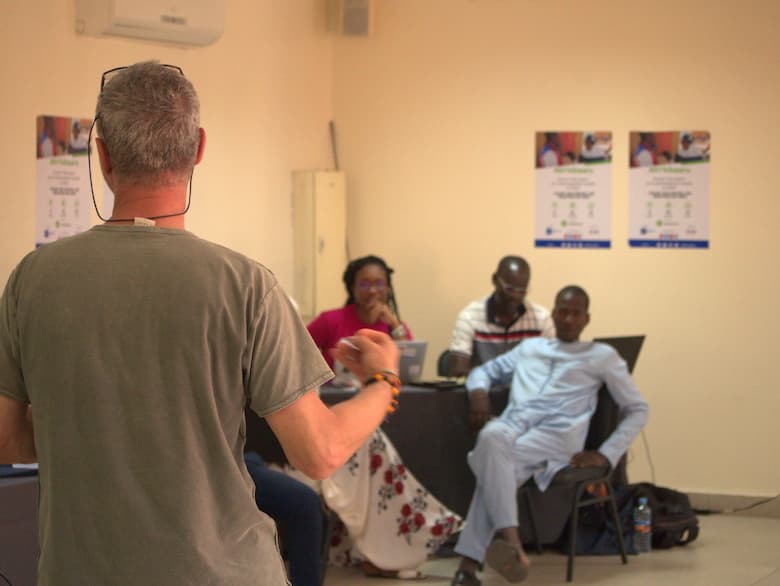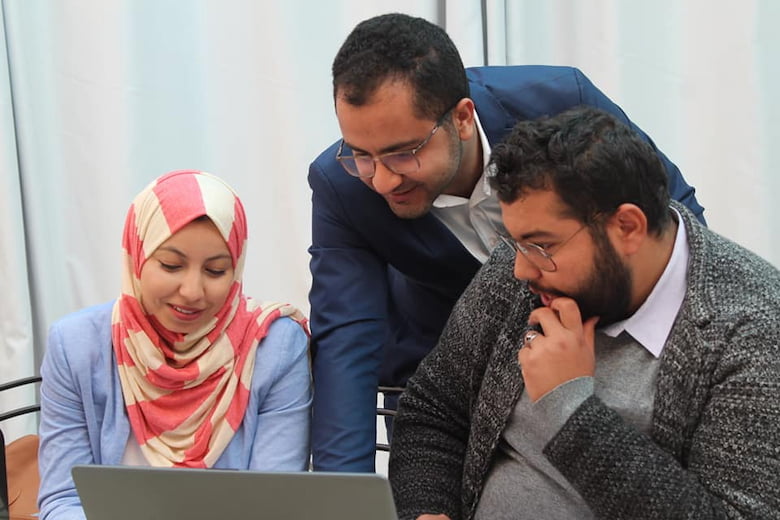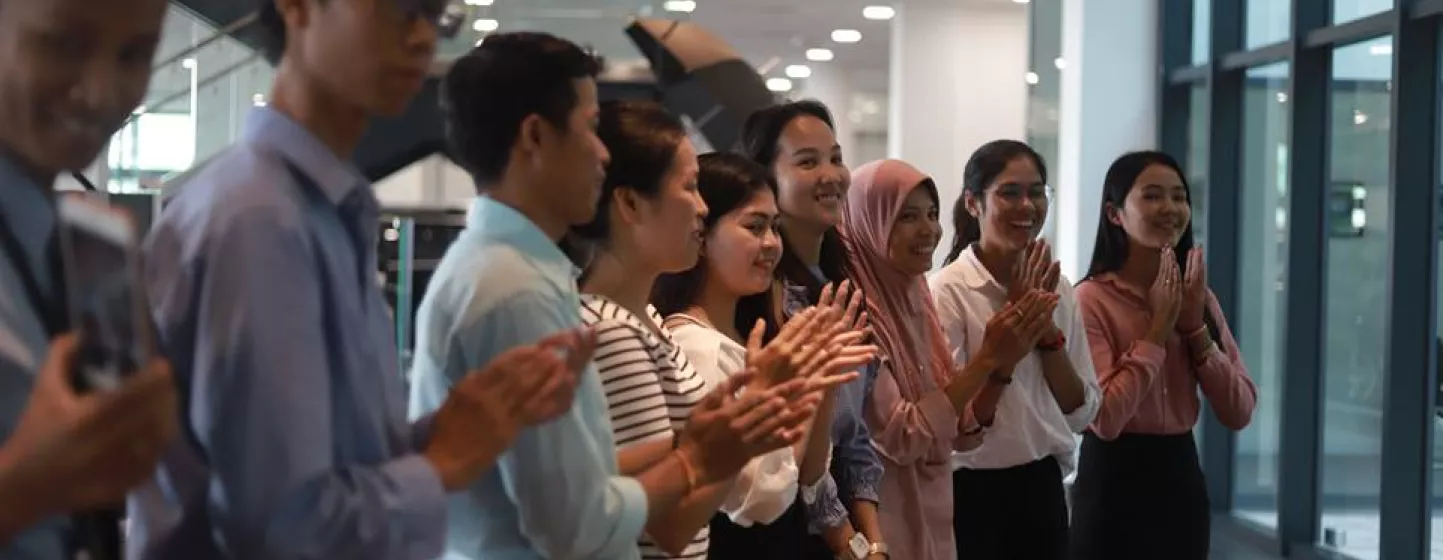Sa communauté
CFI réunit des femmes et des hommes qui défendent une information pluraliste et démocratique.
Organisations partenaires, journalistes accompagné·es, expertes et experts médias : ensemble, ils co-construisent les projets les plus adaptés aux réalités locales et aux enjeux de demain.
Les médias et personnes accompagnées
L’agence accompagne des médias, des journalistes et des membres de la société civile engagés en faveur de l’indépendance de l’information.

Ils opèrent au sein d’un média public, d’un média privé ou d’un média en ligne. Ils sont journalistes, responsables de médias, techniciens et techniciennes de médias, blogueurs et blogueuses, citoyennes et citoyens engagés ou membres de la société civile : découvrez les portraits des bénéficiaires de nos projets.
Notre réseau d’expertes et d’experts
Les expertes et experts sont des professionnels du monde des médias recrutés par CFI pour des missions qui durent en moyenne deux semaines. Ces missions se déroulent en général à l’étranger et s’inscrivent dans le cadre d’un projet pour lequel une compétence spécifique est recherchée (vérification d’informations, production de contenus journalistiques, etc.).
En tant que filiale du Groupe France Médias Monde, CFI peut aussi s’appuyer directement sur les professionnel•les de RFI, France 24 et Monte Carlo Doualiya.
Nous pouvons également mobiliser le savoir-faire de France Télévisions, l'AFP, Médiapart, La Netscouade, i-Télé, Rue89, BFM, Canal+, Lagardère Active ou le Bondy Blog. Ces médias s’engagent à mettre à disposition certains de leurs salariés lorsqu’un projet nécessite une expertise plus pointue ou un accompagnement plus large.

De plus en plus, CFI s’appuie sur l’expertise d’acteurs et actrices de l’information qui ont bénéficié d'un accompagnement de l’agence dans le passé (Africacheck, Africtivistes, CSID, UNALFA, ARIJ, etc.).
Devenir experte ou expert pour CFI
Nos partenaires
Nous travaillons en partenariat avec d’autres organisations dans le monde entier pour co-construire des projets médias.
Certains projets ont ainsi été imaginés et mis en œuvre avec l’Institut français, l’Agence Universitaire de la Francophonie, l’Arab NGO Network for Development, le Lab’ESS Tunisie et Canal + Afrique.
CFI travaille de manière régulière avec son homologue allemand (Deutsche Welle Akademie), l’ONG International Media Support (IMS), l’Institut national de l’audiovisuel (INA), la Fondation Hirondelle et Thomson Media.
CFI travaille également avec Arab Reporters for Investigative Journalism (Arij), AfricTivistes, le Centre For Economic Sustainability and Inclusive Development (CESID), l’Union Nationale de l’Audiovisuel Libre du Faso (Unalfa) et Africa Check. Du fait de leur implantation locale, ces partenaires contribuent à identifier des médias, des journalistes ou des membres de la société civile qui ne sont pas toujours connus de CFI et à construire des projets adaptés au terrain.
Enfin, l’agence est un membre actif du Global Forum for Media Development (GFMD) et du European Partnership for Democracy (EPD).
